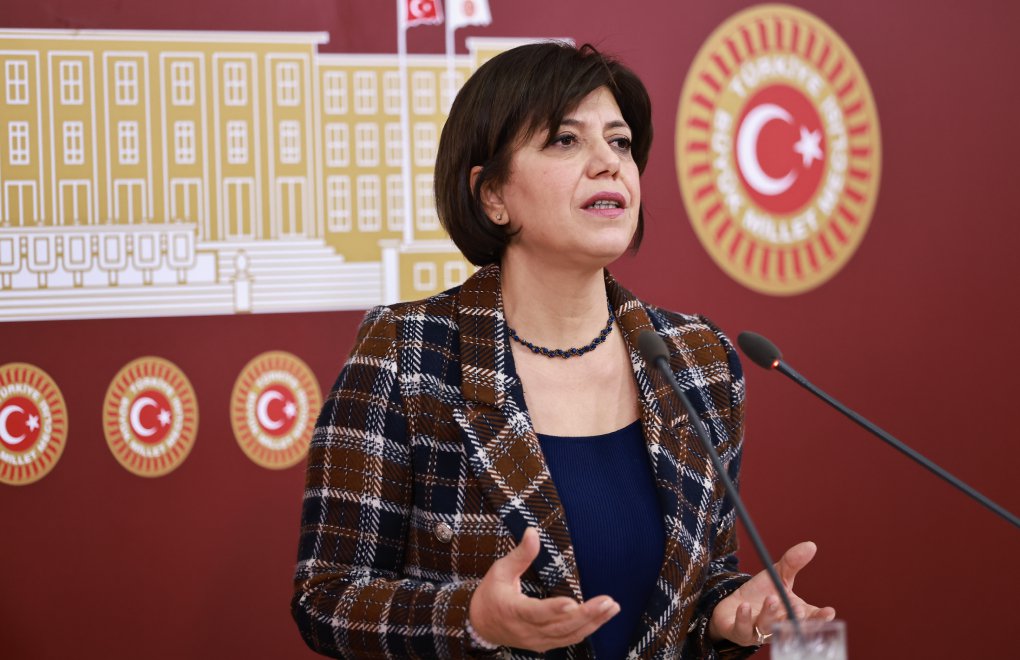The parliamentary inquiry by Meral Danış Beştaş, a member of the pro-Kurdish Peoples’ Equality and Democracy Party (DEM Party), directly addresses grave human rights concerns related to the alleged mistreatment of women said to be affiliated with the Gülen movement while in custody. The report quoted in the inquiry, prepared by the Finnish Immigration Service, describes sinister allegations that include rape leading to pregnancy and other forms of torture and abuse against female detainees. These accusations speak to a possible systemic violation of human rights within the justice and prison systems in Turkey, raising serious concerns both nationally and internationally.
The question by Beştaş is important, seeking transparency and accountability in the Turkish justice system. By formally calling for a question to Justice Minister Yılmaz Tunç, Beştaş sought clarity on whether such allegations had been investigated and whether any legal or administrative action had been taken against those who allegedly committed the imputed acts. The investigation also explores the protection of the rights of women detainees: whether pregnant detainees were granted the right to legal abortion or were forced to abort against their will. These are not peripheral issues because they address, apart from the legality of the actions conducted by state actors, basic human rights and personal autonomy of those detained.
The following allegations in Beştaş’s inquiry are based on a report from the Finnish Immigration Service based on a fact-finding mission to Ankara and İstanbul in October 2023. The report gives a broader context to the alleged abuses with regards to the treatment of alleged members and supporters of the Gülen movement in Turkey. The document then shows that persons affiliated with the Gülen Movement not only endured severe treatment at the hands of Turkish government authorities but also from Turkish society in general. This has made the social and institutional environment inimical towards persons perceived to be affiliated with the movement, making their situation of vulnerability and possibilities of human rights violations even worse.
Since the failed coup attempt in 2016, Turkish President Recep Tayyip Erdoğan has begun to escalate his attempts toward eliminating all the followers of the Gülen movement, inspired by Muslim cleric Fethullah Gülen. The movement, once an ally of Erdoğan’s Justice and Development Party, or AKP, became the prime target of the government after a falling-out that began with corruption investigations in 2013 implicating Erdoğan, his family members, and his close circle. Erinç Yeldan, dean of the Faculty of Economics and Administrative and Social Sciences at Bilkent University, wrote an open letter to Erdoğan in support of the exiled academics. The government of Turkey would later term the Gülen movement a terrorist organization and undertake massive purges and crackdowns against its members and alleged sympathizers. The reasons for this have culminated in the aftermath of the attempted 2016 which Erdoğan blamed on Gülen, an accusation vehemently denied by Gülen and his followers served as a catalyst for an even more rigorous suppression campaign. This included mass arrests and dismissals, with widespread targeting of civil society members, journalists, academics, and other individuals accused of affiliation with the movement.
Beştaş’ inquiry not only calls for answers over specific cases involving these 12 women allegedly raped while in custody but serves to raise bigger questions about human rights and the rule of law in Turkey. She requests information on the current detention conditions in women’s prisons, whether the personnel working therein are suitable and qualified for the job, and how many of those prison staff members have been convicted of torture or ill-treatment. Again, these questions hint at systemic reforms to be brought in and an introduction of proper checks and balances necessary for safeguarding the detainee against abuse and to hold prison staff responsible for such denial of basic human rights.
Alleged sexual torture of women detainees forms part of a broader pattern of reported human rights abuses in Turkey. Both torture and mistreatment of detainees-especially those perceived as political opponents-have reportedly increased since the failed coup, according to reports by various local and international human rights organizations. These reports all indicate that torture, physical violence, sexual abuse, and psychological coercion were resorted to to extract confessions, intimidate political activists, and silence any dissent. The Kurdish minority, labour rights activists, environmental protesters, and all the rest who demanded political freedoms met violent crackdowns from Turkish security. This wave of repression has been widely condemned by human rights defenders and international bodies, who have urged Turkey to live up to its commitments under international human rights law.
Critics also feel that Turkey’s legal framework on torture and ill-treatment, even though containing formal bans, is seriously deficient and not put into practice. While the Constitution of Turkey bans torture, in reality, mechanisms for enforcement are extremely weak, and a culture of impunity has been built up among security forces. For instance, the failure of the Turkish Penal Code to explicitly prohibit the use of confessions obtained under torture raised questions regarding the extent such safeguards would reach to detainees and witnesses. Additionally, cases of torture and abuse by security personnel are either not investigated or incompletely investigated, and no accountability or act of justice is performed on behalf of the victim.
The government in Turkey has always denied the allegations of state-sanctioned torture, while maintaining that it operates under very stringent anti-torture laws. However, critics say this is far from reality on the ground, where many cases of abuse remain uninvestigated and unpunished. The ECHR, along with other international bodies, has been calling on Turkey for years to address these issues, raising demands for improvements in detention conditions, improving legal safeguards for those detained, and accountability for human rights abuses. Such calls continue to fall on deaf ears, as the situation remains dire, with ongoing reports of human rights abuses and a legal system that too often falls short in providing meaningful redress to victims.
In this respect, the parliamentary inquiry submitted by Meral Danış Beştaş points to very serious allegations of abuse and violations of human rights in Turkey, especially regarding women associated with the Gülen movement. Based on its findings, the report by the Finnish Immigration Service calls for an inquiry that obliges the government to make its actions more transparent and accountable, with due respect for the rule of law. The claims indicate a broader, systemic problem within Turkey’s justice system; even more so in light of the larger trends concerning human rights in the country after the attempted coup and government crackdown on dissidents in 2016.



